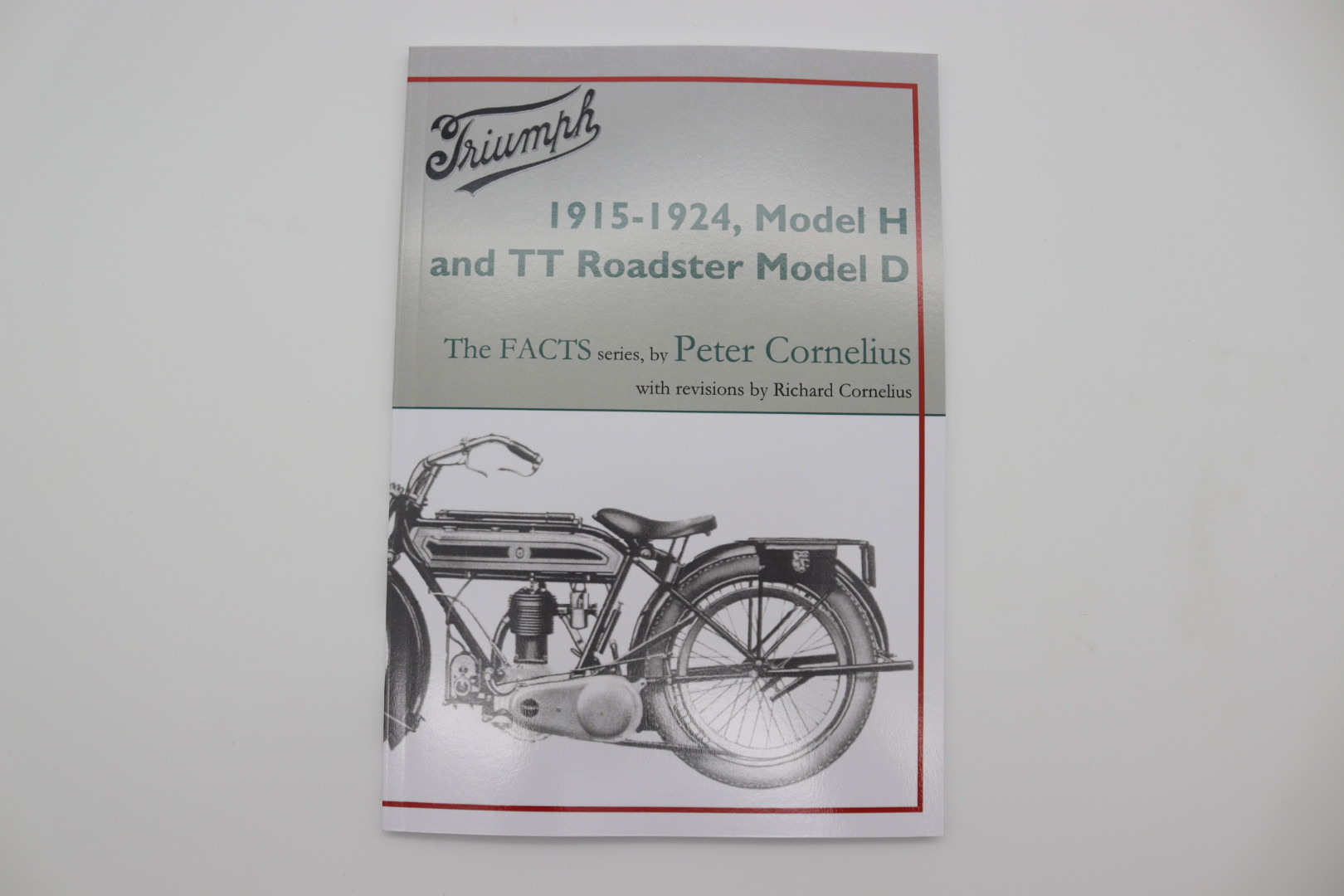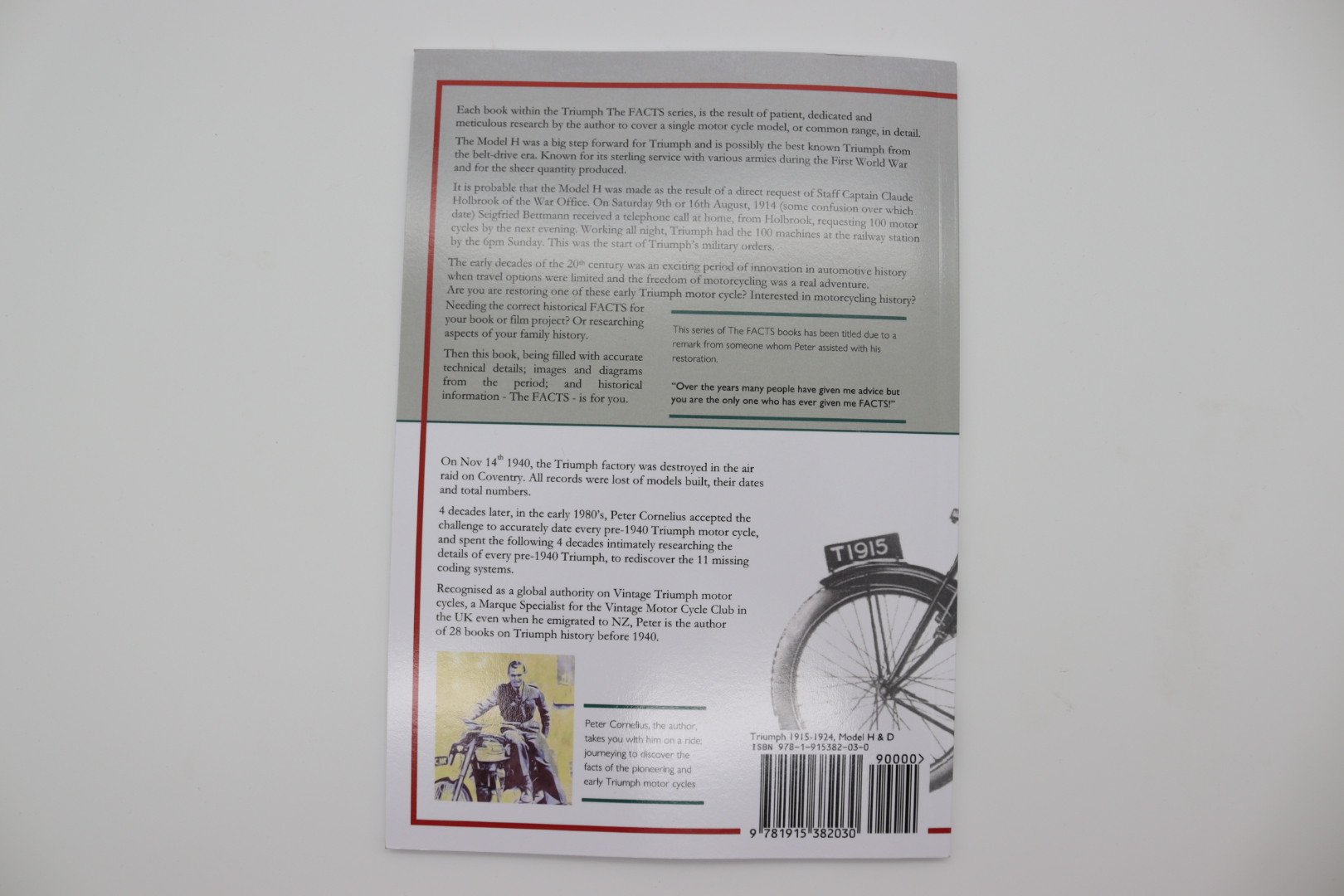Triumph 1915-1926, Model H and TT Roadster Model D
The Model H was a big step forward for Triumph. The 1914 4hp model had paved the way and shown that the extra power available required the introduction of a proper gearbox to replace what was previously really only a souped up cycle hub. With the addition of the gearbox the whole frame was also made much more substantial than previous models. I think it would be fair to say that with the Model H Triumph motor cycles came of age. They were certainly on the right track, for the frame and engine were to appear in the Triumph catalogues for almost thirteen years.
The Model H would probably be the best known Triumph from the belt-drive era. Known for it’s sterling service with various armies during the First World War and for the sheer quantity produced and later used by so many classes of people; from tradespeople to ordinary ride-to-work owners and sportsmen (and women!).
The Model H, Triumph’s first model with a real gearbox as opposed to the earlier heavyweight cycle-type hub, made the model attractive to more than simply the two-wheel enthusiast. A kickstart made starting so much easier and it proved to be a reliable machine almost guaranteeing a return home at the end of the day.
It is most probable that the Model H was made as the result of a direct request of Staff Captain Claude Holbrook of the War Office; and later to become a managing Director at Triumph.
Since this was to be Triumph’s first machine with a real gearbox, and Triumph had none of their own, they looked to Sturmey-Archer, whence came the 3-speed hubs. Sturmey-Archer had a new countershaft box. Designed by Jack/Israel Cohen of Sturmey-Archer it was strong, simple and reliable, and fitted with kickstart and clutch, it was superbly timed to transform the 4hp Triumph into the Model H; much loved by the Dispatch Riders in the Great War.
The early decades of the 20th century was an exciting period of innovation in automotive history when travel options were limited and the freedom of motorcycling was a real adventure.
Are you are restoring one of these early Triumph motor cycle?
Interested in motorcycling history?
Needing the correct historical FACTS for your book or film project?
Or researching aspects of your family history.
Then this book, being filled with accurate technical details; images and diagrams from the period; and historical information – The FACTS – is for you.
Each book within the Triumph The FACTS series, is the result of patient, dedicated and meticulous research by the author to cover a single motor cycle model, or common range, in detail.
This series of The FACTS books has been titled due to a remark from someone whom Peter assisted with his restoration.
“Over the years many people have given me advice but you are the only one who has ever given me FACTS!”
On Nov 14th 1940, the Triumph factory was destroyed in the air raid on Coventry. All records were lost of models built, their dates and total numbers.
4 decades later, in the early 1980’s, Peter Cornelius accepted the challenge to accurately date every pre-1940 Triumph motor cycle, and spent the following 4 decades intimately researching the details of every pre-1940 Triumph, to rediscover the 11 missing coding systems.
Recognised as a global authority on Vintage Triumph motor cycles, a Marque Specialist for the Vintage Motor Cycle Club in the UK even when he emigrated to NZ, Peter is the author of 28 books on Triumph history before 1940.


